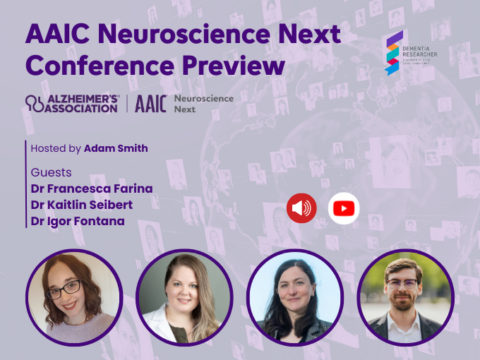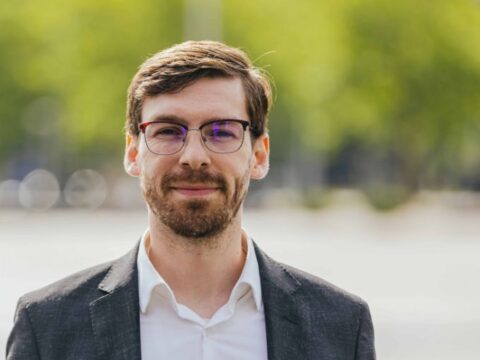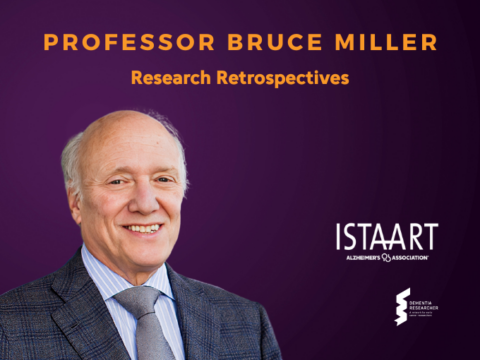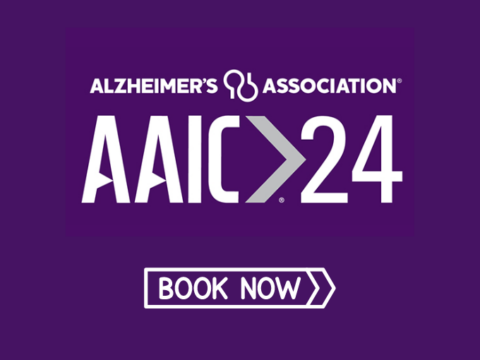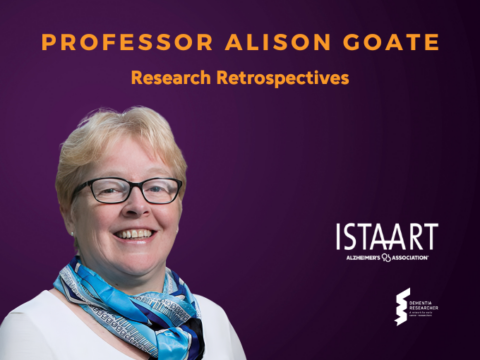The Dementia Researcher, ISTAART PIA Relay Podcast is back for a second, 5-part series. Where the interviewee becomes the interviewer. With five leading researchers discussing their research, their field, and the work of the Alzheimer’s Association ISTAART Professional Interest Area they represent.
Part Five – Dr Claudio Babiloni interview Dr Joe Kane.
Dr Claudio Babiloni is an Associate Professor of Physiology at Sapienza University of Rome. Claudio is investigating the brain rhythms underlying the regulation of vigilance and cognitive functions in aging, with a particular interest in the main progressive neurodegenerative diseases leading to dementia such as Alzheimer’s, Lewy body, and Parkinson’s diseases. The primary methods of this research are EEG and neuroimaging techniques. Claudio is representing the Electrophysiology PIA.
Dr Joe Kane is a Clinical Academic Lecturer working at Queen’s University Belfast. Joe splits his time between research and clinical work as an old age psychiatrist. Having got his taste for academia during his PhD studies working in of Lewy body dementia on the DIAMOND-Lewy programme of studies. Joe is representing the Lewy body dementia PIA.
The Alzheimer’s Association International Society to Advance Alzheimer’s Research and Treatment (ISTAART) convenes the global Alzheimer’s and dementia science community. Members share knowledge, fuel collaboration and advance research to find more effective ways to detect, treat and prevent Alzheimer’s and other dementias. Professional Interest Areas (PIA) are an assembly of ISTAART members with common subspecialties or interests.
There are currently 27 PIA covering a wide range of interests and fields, from the PIA to Elevate Early Career Researchers to Biofluid Based Biomarkers and everything in between.
To sign-up to ISTAART and a PIA visit www.alz.org/istaart/
Voice Over:
Hello and thank you for listening to the second season of the ISTAART PIA Relay Podcast series brought to you by Dementia Researcher. ISTAART is a professional society and part of the Alzheimer’s Association, representing scientists, physicians, and other dementia professionals active in researching and understanding the causes and treatments of Alzheimer’s disease and other dementias. In this five-part series, we once again asked members of the ISTAART Professional Interest Areas to take turns at interviewing their colleagues and being interviewed themselves with the interviewee going on to be the next episode’s interviewer. We’ll be releasing one of these podcasts each day in the build-up to the Alzheimer’s Associations International Virtual Conference to showcase the work of ISTAART PIAs, thank you for listening.
Dr Claudio Babiloni:
Hello everyone and thanks for joining us, I am Claudio Babiloni. I am a professor of physiology at the department of physiology and pharmacology in Sapienza University of Rome. I chair the ISTAART electrophysiology Professional Interest Area shortly PIA in the following. Our work group promotes electrophysiological research in Alzheimer’s and the related dementias. Today, I am very delighted to be talking with Dr. Joseph Kane. Hello Joe, can I start by asking you to introduce yourself and tell us which PIA you are involved with?
Dr Joe Kane:
Thank you very much for having me Claudio. I’m Joe Kane, I’m an academic old age psychiatrist from Queens university Belfast, and I’m the communications officer for the Lewy body dementia sphere.
Dr Claudio Babiloni:
Okay thanks for your introduction. Can you tell us what brought you to dementia research and the focus of your research?
Dr Joe Kane:
Well, I started working at Old Age Psychiatry Clinic in 2011, and I was immediately taken by it. I really enjoyed working with the patients, some of the caregivers and really struck at how each individual experience dementia in a completely different way from the next patient. In some cases, dementia was turning the lives of patients and caregivers upside down. They’re turning the relationships upside down of my couples who had been together for 50 or 60 years. And around the same time, my granny with her members, very close and who had a big part of my upbringing and was, she started showing the first signs of cognitive decline. And a couple of years later, she was diagnosed with Alzheimer’s, again over the following years, I saw that her dementia caused a ripple effects throughout her entire family, through our social networks. I don’t think I realized that at the time, but I think granny was a big inspiration for me to move towards research and to really look for ways to satisfy the curiosity that was awoken by actually working at Old Age psychiatry clinics.
Dr Joe Kane:
And a few years later, I took the opportunity to move to Newcastle and where I researched the clinical epidemiology of Lewy body disorders. And Newcastle upon tine is obviously synonymous with Lewy body dementia. So it was wonderful to work there and while I was there, I did my PhD on the use of MIBG cardiac imaging to differentiate dementia with Lewy bodies from Alzheimer’s disease. And they also worked on the Diamond Lui program of studies in which we developed diagnostic and management tool kits and introduced them and into clinical services. And we were still publishing papers on Diamond Lui. So I returned to Belfast in 2017 and returned to my clinical duties whilst also trying to develop my academic work. So currently I am, my work merely focuses on the pharmacoepidemiology of different types of dementia, but I’m also working up a couple of projects on the peripheral manifestations of dementia with Lewy bodies. And so it’s been quite a long journey but I’m very privileged to have worked with some great researchers and to be still involved in clinical work as well.
Dr Claudio Babiloni:
Okay so I’m very sorry for your familiar experience. I see that your history crossed with your academic and professional choices, and what’s the percentage of patients as your grandmother? What’s the percentage of patients with Lewy body dementia?
Dr Joe Kane:
So the prevalence of Lewy body dementia was one of the main focuses of my PhD work and that we conducted one of the largest clinical epidemiological studies of Lewy body dementia. And we find that it really represented just under 5% of all cases of dementia. And I ever at we know that detection is an issue and DLB and PDD, we know that sometimes a disease can be expressed in different ways. And when we look at the post mortem data, we strongly suspect that Lewy body dementia represents 15 to 20% of all dementia. It’s just not always expressed and just not always detected.
Dr Joe Kane:
So it’s one of the reasons why we always get very excited about the emergence of biomarkers that are useful in the clinical setting, and I suppose overlapping with your own work, we have really helpful electrophysiological biomarkers and that we have, polysomnography, which includes EEG, which is an indicative biomarker for DLB, which means that if we have a positive PSD result along with one of the core clinical features of DLB, that it confers a probable DLB diagnosis and then also EEG has a role in being a supportive biomarker that is a helpful, frequently observed practicable biomarker that doesn’t necessarily confer the same type of specificity and that to actually confer a diagnosis. So that’s specifically prominent posterior skill wave activity on EEG with fluctuations. So any time that we find out about a new biomarker or a new mechanism of detecting and diagnosing DLB better, we get very excited.
Dr Claudio Babiloni:
Yeah, I really appreciate your answer because I think that the Lewy body disease sphere is performing a strong work in order to exploit the use of biomarkers and is a model also for other neurodegenerative dementing disorders. And I think that the dimension of the dementia in the world is a really challenging the societies. And I think that the estimation of Alzheimer’s Association is that there are about 50 million of people with dementia today. And so the five, 10% of these a number is really huge and the EEG biomarkers are low cost and non-invasive and may be used in some countries with low or middle income before to go to neuro imaging and the, but you introduced some really interesting issues in epidemiology and in the panel of biomarkers, but what are the hot topics in Lewy body dementia field today?
Dr Joe Kane:
Well, that’s a really exciting time to be in Lewy body dementia search because we are discovering more about biomarkers and about the disease itself. The last few years has seen prodromal DLB emerged as a really major research thing. And there’s a lot of exciting work out there, characterizing the neuro-psychological and the clinical profile of the disease as well as looking at some newer imaging characteristics and electrophysiological characteristics. And a lot of the great work is coming out from Italy of course, also from Newcastle and from Amsterdam, Strausberg around prodromal disease. And so all the more impressive when you see the sample sizes, the challenges of actually identifying and recruiting prodromal cohorts and it’s research is actually making its way into our clinical practice. So we are starting to scrutinize patients a bit more closely for early Lewy body symptoms and thinking a lot more about how we could and should be using the likes of neuro imaging and other tests.
Dr Joe Kane:
Similarly, just as blood-based biomarkers have been making a big splash and Alzheimer’s land and it’s also an increasingly hot topic in Lewy body dementia and we’re keen to see “hi, all the great work,” and the likes of neurofilament light applies to Lewy body dementia, particularly as bigger and better characterized cohorts become included in studies. And the, as I said before, our community has long highlighted the importance of detection and accurate diagnosis and the likes of a blood-based biomarker in the clinic would be a real game changer and so we’re really excited about that. From a strategic point of view and we touched on it earlier before, and that dementia is a global health issue and we are really keen and appear to start addressing that. And where we see good Lewy body dementia research, we usually see good training and education and practice in Lewy body disease.
Dr Joe Kane:
So one of the things that we hope to do as a PIA is to spread the net, as to widen the community of the LB researchers beyond Europe, beyond the U.S. and beyond flex of Japan to as much of the world as possible. And that in turn will allow us to hopefully recruit bigger sample sizes that we can do sub-analysis on and learn a lot more about the disease. So that’s been a real focus of our PIA is making this a global international community where before it had been something a little more small.
Dr Claudio Babiloni:
Yeah, this is a very interesting, but you are a very active scientist. And so you are in touch with a lot of research group in your area. And so I wonder what’s the added value of Lewy body dementia PIA, in supporting your field over research, considering the other associations or in the area of Lewy body diseases?
Dr Joe Kane:
Yeah the PIA really allows us to look at Lewy body dementia from a global perspective because it’s got this infrastructure, because it’s got this large membership because it’s got these great initiatives like this podcast, for example, to really allow us to engage people on a global level, on a personal level, it’s been really important to me in expanding my professional on academic networks. Particularly as I make the transition from an early career researcher into a more senior researcher and I think sometimes as an early career researcher, you struggle with the idea of networking and the PIA gives an amazing opportunity and a real platform for early career researchers to really get involved with researchers from all over the world and some of the real giants and the fame. And when like me, if you’re part of a really supportive and interesting group, which is slightly outside the major DLB research groups, it can be difficult to stay a breathe of some of the exciting research which has coming out, and it can be quite difficult to forge new collaborations and relationships.
Dr Joe Kane:
And my primary motivation for joining the PIA was to support that area of my work. So I got involved with some of the working groups, I got the opportunity to get my name out there a little bit more to publicize and share my research a bit more. And then as I got more involved in some of the working group projects that we have going on in particular, the consortia work working group, it meant that I’ve really been able to engage a lot more with the community and then I was before, it’s also helped me recognize someone who is in clinical services, what I should be doing and how you should be doing it when it comes to establishing a DLB dataset.
Dr Joe Kane:
I’m in training at DLB registry that is capable not only of producing good research locally and within our lab, but also capable of contributing to some of these multinational multicentre consortia and really contribute to this global effort. And then obviously since I’ve been appointed to the executive committee, which gives me the great opportunity to get involved in initiatives like this podcast. So I think looking forward to the future, the PIA is really keen to engage ECRs and support ECRs as much as possible, as we continue to cultivate our community.
Dr Claudio Babiloni:
Okay, yes but I think that, of course the interaction and the networking and leaking among the research groups is important in all areas of a dementia research. So my question is if it’s a specifically important for Lewy body dementia research.
Dr Joe Kane:
With respect to ECRs? Yeah, I think so. I think that there’s two different perspectives to it. I think first of all of course, we need the research leaders of the future, we need that. And that takes an awful lot of time and an awful lot of building things like networks and relationships, I think in a more immediate sense. However, we want to know as a PIA, what early career researchers actually need right now, what do we need to get you to the next stage? What do we need to help you with your work? And in order for us to know about that, we need as many people involved as possible. So you do not need to be an expert and Lewy body dementia to join this PIA, you don’t need to be a commission, you don’t need to be any particular level.
Dr Joe Kane:
We want to hear from people of all different levels. And I think another reason why it’s important that we support early career researchers going forward is because, three body dementia does have its idiosyncrasies and its unique aspects. And we want to keep young, talented researchers of all backgrounds and the Lewy body dementia field, rather than encourage them to look towards some of the other dementia fields that maybe traditionally have had access to different funding streams and other expertise. So we, like I said, we really want to cultivate not only a community, but a pathway for our younger researchers to make it from RD career to more senior levels.
Dr Claudio Babiloni:
Okay I see that you are inviting people to be in touch with your PIA, but maybe they may be interested in know a little more about the PIA, what is a PIA? What’s your committee for example and what’s the general organization of a PIA.
Dr Joe Kane:
Sure well, we’re a relatively young PIA and reformed in mid-2019, and we have a relatively small executive committee. So we have a chair and a vice chair. That’s professor Diag Osland from Kings College, London and Stavanger University Hospital, Dr. Jim LeBrons from the Cleveland Clinic in the USA. We also have professor Dara Bonami from the University of Katie Pescara. She is our programs officer, as well as Dr. Bradley Beauvais from the Mayo Clinic in Rochester, so a real grip of giants in the field. So anyone that’s interested in Lewy body dementia will the impact that these researchers have had on the field. And then there’s me as communications officer, and we’re supported by staff from the Alzheimer’s Association and in particular, the wonderful Judy Tettener. So we have regular meetings, we in particular run three working groups that are focusing on different projects.
Dr Joe Kane:
So first of all, we have one focusing in on DLB consortium, one on prodromal DLB, prodromal Lewy body dementia, and one focusing on clinical trials. And each of those three work in groups holds a virtual meeting every three months or so. And many of our 60 PIA members will participate in all three of those groups. Some of them will participate in one, some of them in two. So this year the groups have been working together on projects outlining really where we stand globally with Lewy body dementia research for breaching at Don Toenail, he and I worked with Claudia and I have been working with the consortium working group and including yourself, of course to gather information on DLB consortia around the world, what type of data they collect? Which centers they include and so on. And it’s been a really exciting project to work on because I’ve been sending emails on a Monday afternoon.
Dr Joe Kane:
And by the time I wake up on Tuesday morning, I have replies from Katie as well as China and India and Columbia. So it’s be really exciting in that sense. And another other working groups, Federico Rodriguez Purcell has been working with the trials method group to really do a systematic review on the current icon measures employed by Lewy dementia trials. Our expectation eventually being that novel bespoke and Lewy body dementia icon measures are likely to be required in the future as well as harmonization of existing methods. So these projects are all going on in tandem and they are all available for anybody in the working group and anybody in the PIA to participate in.
Dr Joe Kane:
And it is a very genuine collaborative, multi-disciplinary, multi-national effort. And the meetings are really convivial and relaxed and it’s not the type of meeting whereby an early career researcher, for example, would be afraid to put their hand up and a question. It’s genuinely collaborative, it’s very exciting work. And that’s one of the reasons we really want early career researchers to join. And so we will continue to adopt that structure in the years ahead, we’ll also be looking towards other initiatives that engage people a bit more like this podcast, networking sessions and other activities like that.
Dr Claudio Babiloni:
Okay so I admit that I have a conflict of interest because I am also a member of Lewy body dementia PIA. Okay but I see that you have been very convincing and probably many early career researcher or listening, maybe interested in being involved in the PIA initiatives. So practically, how can an early career researcher became a member of LBD PIA?
Dr Joe Kane:
Well, the first thing to do is with your eyes start a client is to sign up for the PIA if you haven’t already done so. As I said before, you don’t need to be an expert, you don’t need to be a professor, you don’t need to be a prolific researcher. You just need to be interested and working collaboratively and enthused at advancing the field. And so we welcome people from all backgrounds in particular, your rights, I do really want to encourage early career researchers to take part, not only because they’re the future leaders of the field, but also because we want to know how we can improve the work of the PIA the best cater for early career researchers. So once you join up for the PIA, you’ll be sent invitations to our virtual meetings for our working groups. As I said before, they’re are a lot of fun and they’re very genuinely collaborative and cordial and productive as well.
Dr Joe Kane:
The projects that we’ve been working on this year have already produced one manuscript, which has been submitted and we’re well on our way towards submitting a second. So it’s a great opportunity for researchers to be involved in projects like that. If you’re still undecided about whether or not you want to join, we’re holding a few different events over the next few months. On Wednesday, the 21st of September, we’re having our scientific session. Sorry 15th of September we’re having our scientific session, in which will be welcoming early career researchers and more senior researchers from all around the world to present the new Lewy body dementia research. Before that in July, if you’re attending AAIC, we are holding a preview session and the networking session. And to go along with the AAIC schedule, again this is a great opportunity to meet some of the executive committee.
Dr Joe Kane:
You’re very approachable and very friendly and very raking to support and researchers of all levels. And that should be a fun opportunity for us to highlight some of the posters that we’re looking forward to seeing on some of the oral presentations that we’re looking forward to seeing. So if you’re still on the fence, if you’re still undecided, please attend those events. And if you’d like by all means, get in contact with me as well, and I’ll try and persuade you more, but I genuinely can’t encourage early career researchers enough to get involved in this PIA.
Dr Claudio Babiloni:
So I think that it’s a really exciting to be part of these initiatives in the coming mounts. You introduced several initiatives, the podcast, the work groups, working on the guidelines to linking local research. So there are several initiatives in front of us, but could you emphasize a couple of goals, most important for your PIA in the coming months.
Dr Joe Kane:
Certainly in terms of the NEC plans for the next year. I think we’ll be looking to really build on the momentum that we’ve gathered over the past 12 months, particularly with respect to widening the net of Lewy body dementia research. So we really want to involve and engage researchers and clinicians, particularly from regions that haven’t previously been active in the thing. We want this to be a global community, we want people from as many walks of life as possible to join us in that respect. We want to think of the best ways that we as a PIA can support people that are thinking of starting up new groups, people that are thinking of contributing to consortia. And I think one of the things we have to do is figure out how we can share data with each other more effectively and harmonize that data much more effectively.
Dr Joe Kane:
The work of the clinical trials group will hopefully create a standardized battery of outcome measures again, with the idea of harmonizing global data, as much as possible. And then from a strategic point of view, we really want to grow the membership of the PIA membership itself. I know you’ve got split loyalties, but the Lewy body dementia PIA is the best PIA. And I think, and everyone needs to know that. And we’ve been delighted with what we’ve been able to achieve this far, but with a larger more diverse group, we think we can achieve even more. So I think another type of thing that we’ll be looking towards is to collaborate with some other PIAs, particularly, of course, the electrophysiology PIA, there are a lot of overlaps and a lot of overlapping themes between our respective things. So we want to explore that as well.
Dr Joe Kane:
And then finally, we will really look towards some of the opportunities that ISTAART offer in terms of some of these group mechanisms that they have for engaging as many people as possible and as wide a range of people as possible. So things like the journal clubs and meet the author sessions, we think are really great initiatives. And whereas we don’t have dates in the diary yet, I would encourage people to look out for events that will be holding over the next year. Finally, we’ll be on the hunt to get early career researchers to participate in these events. So all the more reason for them to join the PIA.
Dr Claudio Babiloni:
Okay and about you, I suppose that your group will be presenting some new findings in the upcoming Alzheimer’s Association International Conference in July this year. And can you give us some anticipations about your fresh findings?
Dr Joe Kane:
So I’m not unfortunately presenting at AAIC this year because I’m between projects and having move labs as well. But I know for a fact that the Lewy body dementia PIA will be very well-represented and both the oral presentations and on the poster presentations as well. We are in the very final stages of putting together our scientific session, which will be at a designated session specifically for a Lui by dementia and began that promises to show some of the most interesting research from a search of all backgrounds. So keep an eye out for that as well. So I’m not presenting, but I’ll definitely be attending and I’ll definitely be highlighting in our previous session some of the presentations that I’m most looking forward to attending.
Dr Claudio Babiloni:
Okay, thanks a lot. I think that we have to go to the end of this conversation, but my final question is what advice would you give to aspiring dementia researchers about the direction of the most promising research and what’s the perspective of a younger researcher in LBD PIA?
Dr Joe Kane:
I Think the best advice that I could offer anyone in the early stages of the career is to be confident and ensure their enthusiasm and be very willing to get involved. Sometimes as an early career researcher, you feel reluctant to speak to people who you perceive as the giants in the field, you can be a bit afraid that people will judge you or people will not think that you’re worth their time. That has been the polar opposite of my experience in particular, with the Lewy body dementia PIA and under Lewy body dementia community in general. Even though we have some absolute giants, some incredibly accomplished scientists and clinicians, they’re always willing to chat, they’re approachable, they’re friendly.
Dr Joe Kane:
So my main piece of advice would be to abandon shyness and abandon your reservations and talk to these people. And again, the plug the PIA, I think the PIA is a great opportunity to do that because it can be a meeting of 30 people from around the world of all different backgrounds and yet it’s relaxed and a cordial enough environment that questions and contributions from early career researchers are welcome. So that’s the main thing I would do is really to get involved and don’t be afraid.
Dr Claudio Babiloni:
Okay thanks a lot, Joe for taking time to join us today. Thanks a lot.
Dr Joe Kane:
Thank you very much, Claudio. I look forward to hearing your interview and to working with you in the future as well, thank you.
Voice Over:
This is the last in the second series of the relay shows, we hope you’ve enjoyed listening. ISTAART PIAs are a great way to expand your network, to find new collaborators and we hope these podcasts have inspired you to become involved. You can find profiles on today’s panellists and information on how to get involved in ISTAART on our website at dementiaresearcher.nihr.ac.uk, and also at alz.org/ISTAART, we’re really looking forward to next week’s AAIC conference. So if you haven’t already registered visit alz.org for more information, finally once again, please remember to like, subscribe and leave a review of this podcast on our website and in your favourite podcast app. Thanks for joining come back next week to catch our AAIC conference daily roundup shows where we’ll be sharing our favourite moments from the conference.
Voice Over:
Brought to you by dementiaresearch.nihr.ac.uk in association with Alzheimer’s research UK and Alzheimer’s society supporting early career mentor researchers as across the world.
Voice Over:
Hello, this is Adam Smith. I’m just dropping into the podcast stream to ask you a favour. Dementia researcher has been nominated for a People’s Choice podcast award, and it would be fantastic if you would take a moment to vote for us. You’ll find the link in the text below the podcast. And if you visit podcastawards.com, register an account and you’ll find dementia researcher in the science and medicine category. Choose us, hit submit, job done. Dementia researcher is a real passion of mine, I so enjoy producing the podcast and occasionally hosting as well. All of our guests give up their time freely and I think this would be a fantastic way to recognize their contribution and to help put important dementia research on the map. So please, if you have a moment, it will be fantastic if you could take the time to vote. Thank you very much for listening and again, click the link in the text below, or go to www.podcastawards.com by the 31st of July, thank you.
END
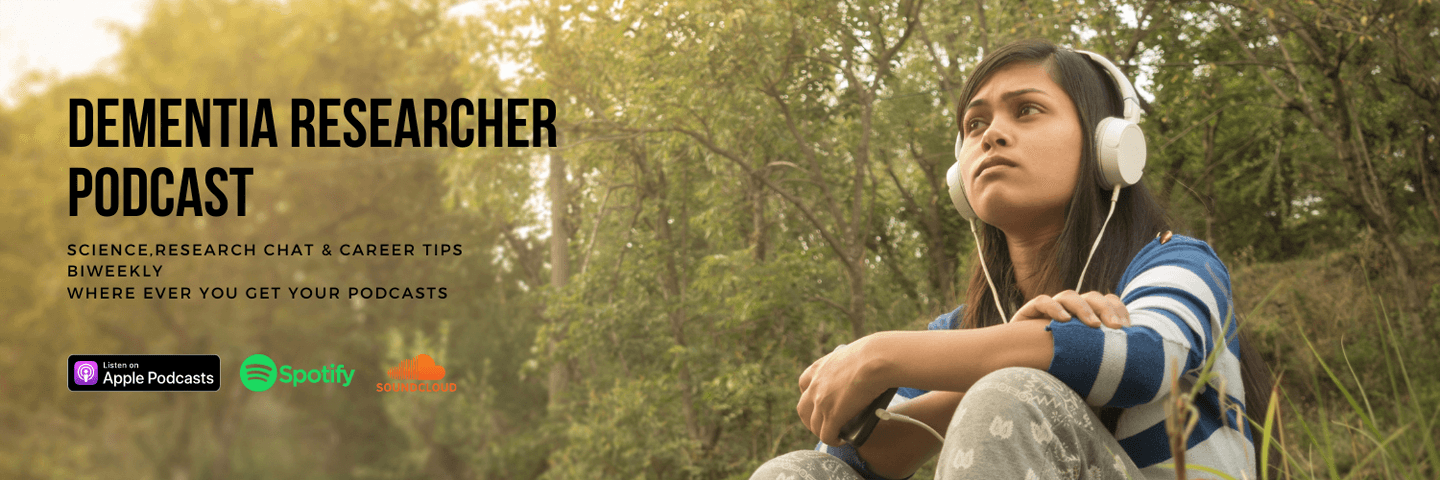
Like what you hear? Please review, like, and share our podcast – and don’t forget to subscribe to ensure you never miss an episode.
If you would like to share your own experiences or discuss your research in a blog or on a podcast, drop us a line to adam.smith@nihr.ac.uk or find us on twitter @dem_researcher
You can find our podcast on iTunes, SoundCloud and Spotify (and most podcast apps) – our narrated blogs are now also available as a podcast.
This podcast is brought to you in association with Alzheimer’s Research UK and Alzheimer’s Society, who we thank for their ongoing support.

 Print This Post
Print This Post